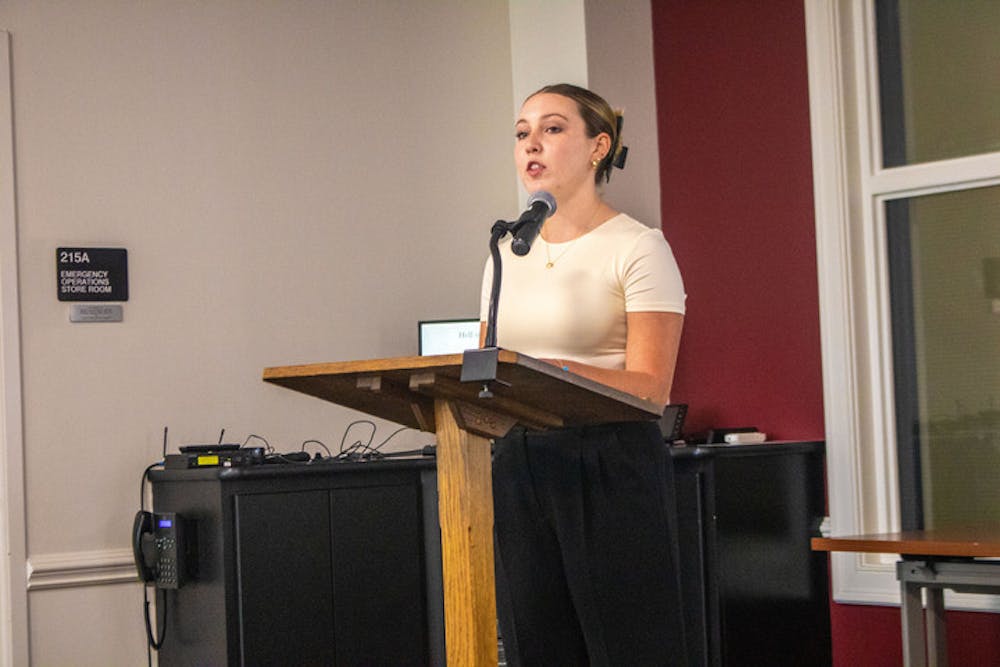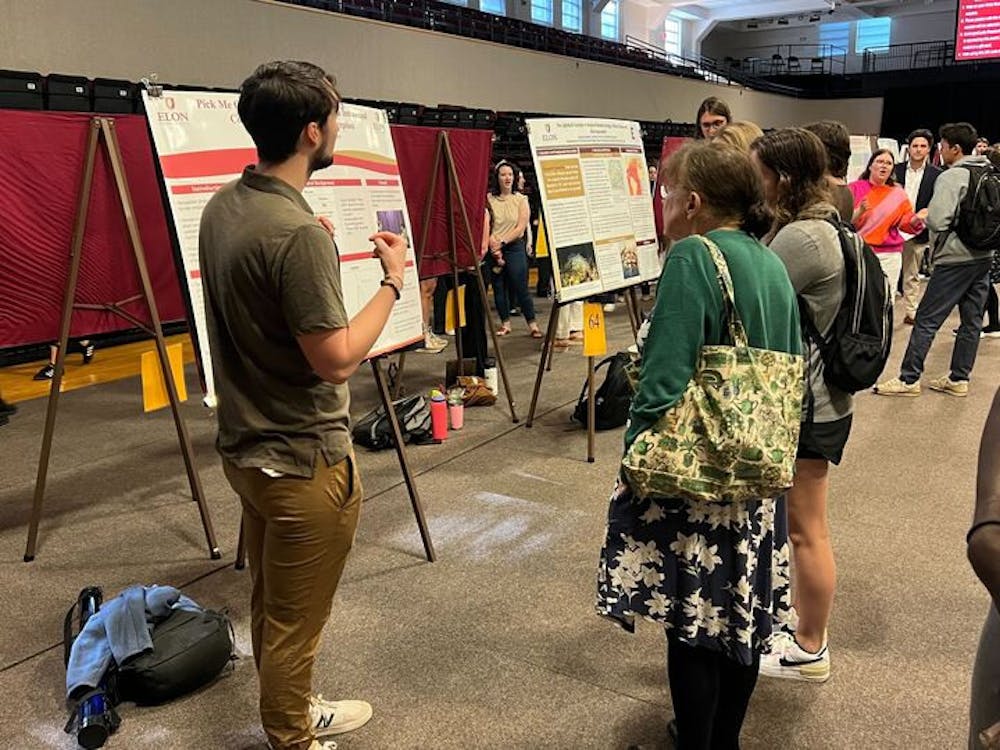Elon University’s annual Spring Undergraduate Research Forum had record-breaking participation this year. There were a total of 322 presentations this year, a 19% jump from last year and the highest in the forum’s 31 year history.
According to Jen Hamel, associate director of undergraduate research, this is the result of an upward trend she has noticed over the past several years.
“I would say over the history of SURF, it has consistently grown over time,” Hamel said.
Hamel attributes this growth to increased participation in SURF from the School of Communications and the Martha & Spencer Love School of Business.
SURF is a celebration of the research and creative activity done by students, Hamel said.
“Students put so much energy, thought, work and time into the projects,” Hamel said. “It is a wonderful moment for the student when they are recognized by other students and also by faculty for this kind of effort.”
The 322 presentations were divided into 168 poster presentations, 154 oral presentations and 35 creative performances.
“You often hear the phrase ‘undergraduate research,’ and at Elon, we consider that phrase to be inclusive of creative activity,” Hamel said. “It’s any kind of focused engagement by students who are being mentored by faculty that results in original work that can be disseminated.”
The topics were of a wide variety. 72 related to diversity, equity and inclusion. But 43 were related to sustainability, and there were numerous data intensive projects.
Hamel said the variety of topics is what makes SURF so special.
After SURF opened with a special College Coffee outside the Koury Center, the poster presentations took place in Alumni Gym while the oral presentations happened across campus. The oral presentations were 12 minutes each with 3 to 5 additional minutes for Q&A.
One of these oral presentations took place in Belk Pavilion and was led by senior Madeleine Hollenbeck. Her topic was “Museums and Ritual Objects: Examining Curatorial Practices and Reanimating Religious Art.” Hollenbeck analyzed how to improve curatorial display methods and museums, specifically with religious art, and how to increase visitor engagement with religious art and museum spaces. She said it was great to combine her love for art history with museums in this project.
“I wanted to do something relating to museums, while still having it be art history research,” Hollenbeck said. “So I'm able to combine a lot of academic analyses of medieval religious art, while at the same time bringing it into a contemporary context.”
Hollenbeck said one of her favorite parts of the process was getting closer to her mentor, Evan Gatti, Elon Art History professor. She also said it’s great that SURF allows her and others to see each other’s work.
“It’s this big exciting presentation and the culmination of everyone's work,” she said.
Another Elon student who conducted an oral presentation at SURF was junior Olivia Lancashire. Her research topic was “Fire & Brimstone - An Origin Story of Hell,” and looked at the intersection between Christian perspectives on Hell and religious trauma.

“I've kind of just built up a knowledge base of where do we get the idea of Hell, what is the popular modern idea of Hell?” Lancashire said. “I’m basically bridging the gap of how we got to that depiction.”
Lancashire said she learned a lot about research from the process.
“I learned through the research process that it's not always going to be what you expect,” Lancashire said. “The more that you learn about the topic, the greater likelihood is that your project will kind of take a different route than you initially intended.”
Lancashire said it was great to be able to present to her peers, while also seeing what her fellow students researched.
“I think it's just kind of cool to have the opportunity, one for myself to go and learn from other students, but also to get to represent a topic that means a lot to me and have other people learn about it,” Lancashire said.
Even beyond the benefits for the students who conducted research, Hamel said SURF is very beneficial for students who attend the presentations.
“If you are a first year student or a second year student, there is no better way to learn what is possible to do at Elon than to go to SURF,” Hamel said. “If you go to the poster sessions, you're going to encounter students talking about the projects they have done in every discipline on campus.”
Hamel also said the unique part of SURF day is the diversity, and one of Elon’s strengths is its ability to not just solely focus on typical research topics, but also the creative disciplines. It's great for her and other faculty members to see what all departments are doing, Hamel said.
“I can actually see the breadth and depth of what's happening on campus on SURF Day,” Hamel said.


